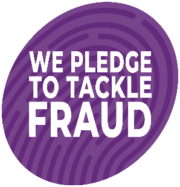Food Shopping and Deliveries
In this article, we look at ways online shopping may help you, how to make shopping in-store easier, how to access food banks, and more.
Shopping for food and other essential items can be particularly challenging when you have a child with serious health needs. Time, money, and the ability to get out of the house are all barriers to the essential activity of providing food for your family. In this article, we look at ways online shopping may help you alongside how to make shopping in-store easier.
Food Deliveries

Since the COVID-19 pandemic, online shopping has become much more popular. Most supermarkets now have an online delivery and/or click-and-collect service. These services will pick and pack your shopping and deliver it to your front door.
If you shop online regularly, it is helpful to know which ones offer the best value for money. Click here for an article which compares delivery costs for some of the major supermarkets, including Asda, Iceland, Morrisons, Ocado, Tesco, Sainsbury’s, and Waitrose.
If you urgently need groceries, there are also same-day supermarket delivery services. Deliveroo and Just Eat both have supermarkets and smaller grocery shops on their apps and are often able to deliver in less than an hour.
One of the downsides of getting your shopping online is that you are unable to select your own fresh produce. Having items that go out of date quickly can be wasteful and expensive. Which.co.uk have an article to help with this, that details supermarkets that have the freshest groceries on delivery.
Food Box Subscriptions

Food box subscriptions deliver all the necessary ingredients to make a complete meal. Only the exact amount of each item needed to make the meal will be included, which reduces food waste. The boxes also help you be more creative in the kitchen, with the ability to try new and different meals easily.
There are numerous food box subscription delivery services across the UK. Many deliver specific foods, for example, vegetable boxes. Others deliver a larger range of products. Click here to find a box suited to your needs and read reviews from other customers.
It might also be worth contacting local suppliers, such as butchers and grocers, who may offer a weekly box service already or might be able to put a box together for you.
Some Local Authorities offer Meals on Wheels, where hot and/or cold meals are delivered to your door, if you meet their eligibility criteria. Each Local Authority will have its own eligibility requirements and ways to access the service. You can find your local council’s contact details here.
Volunteers

There are people who volunteer their time to undertake shopping on your behalf. You can find volunteers to shop with you, or for you, by contacting your local authority (GOV.UK). Local charities and organisations may also be able to help. It is worth searching for disabled charities and Facebook groups in your area to see if they can help.
Time banking has grown in recent years too. In time banking, you help someone for an hour (or thereabouts) for example, by mowing their lawn or doing their shopping. For every hour of help you give, you earn an hour’s credit from your time bank. You can spend your time credit by receiving an hour of someone else’s time. Time banking can be a great way to share skills. If are unable to spare any time, your local time-bank may still be able to assist you or know of others who can, find your local time bank here.
Top-Tip
If you are using a volunteer to help you with your shopping, you will need to discuss the following with them first:
- How to pay
- Where to leave your shopping
- Writing a shopping list together
- How much it should cost
- Food allergies
- If you’re happy with substitute products
- Giving you a receipt afterwards
Shopping cards
Several supermarkets offer volunteer shopping cards that can be topped up at home and sent to the volunteer shopper on your behalf. The cards function in much the same way as gift cards. This means no cash or bank details need to be exchanged with a volunteer. Most of the volunteer/gift cards can be emailed to the volunteer or printed out and left in a safe place for the volunteer to pick up. Physical cards are also sometimes available on request.
Click on the supermarkets below to see details of their shopping cards:
Food Banks

Food banks are community organisations that can help if you can’t afford the food you need. You will usually need to get a referral to a food bank before you can use it. This includes all food banks run by the Trussell Trust. You can get a referral for yourself and any family members you live with, including your partner.
You can ask Citizens Advice to refer you to a food bank. They’ll usually make an appointment for you to discuss your situation with an adviser first. If you can’t go to Citizens Advice, you can ask for a referral from another organisation, for example, your GP, housing association, or social worker.
Your local council might also be able to tell you how to get a referral to a food bank. You can find your local council’s contact details here.
There are some food banks you can use without a referral, for example, if it is run by a church. Contact your local food bank to see if you need a referral. Find your local foodbanks here.
For further information on how food banks work, see here.
Quiet Shopping Hours

Many supermarkets offer a dedicated quiet hour for shoppers who are elderly, disabled or have young children. This time aims to offer a more relaxed shopping experience.
Some shoppers will find the weekly supermarket shop a stressful experience because of its bright lights and loud noises. In response, various supermarkets have introduced a ‘quiet hour’ that offers a calmer shopping environment. To be clear, the quiet hour doesn’t guarantee that there will be fewer customers, but rather that factors such as lighting and intercom announcements are toned down compared to ‘normal’ shopping hours. That said, they are always offered outside of peak shopping times, so they’re likely to be less busy overall.
Of the major supermarkets, the following have confirmed that they offer quieter shopping hours:
ASDA
“The new ‘Quieter Hour’ in stores will last between 2-3pm Monday to Thursday and will see reduced noise levels in our stores to make visits more accessible for customers with additional needs. The Asda Store Locator will also be updated to provide better accessibility information in each one of our stores, including information about changing places bathroom facilities, braille guns and hearing loops which are available in several stores across the country.”
You can find your local Asda store here
Tesco
“We want to help deliver the easiest shopping trip for everyone in our stores – so every Wednesday and Saturday, from 9am-10am, we’ll be dimming the lights and lowering the Checkouts noise in all of our large stores, to make it a more enjoyable experience for customers.”
You can find your local Tesco here
Morrisons
“Listening to customers, we found that one in five customers liked the idea of being able to shop in more comfort between 9-10am on a Saturday. During Quieter Hours, our stores will:
- Dim the lights
- Turn music and radio off
- Avoid making tannoy announcements
- Reduce movement of trolleys and baskets
- Turn checkout beeps and other electrical noises down
- Place a poster outside to tell customers it’s Quieter Hour”
You can find your local Morrisons here
Lidl
“Every week we offer Quiet Evenings to all of our customers. These evenings take place every Tuesday evening from 6pm-8pm across all of our stores. Features of the evening include:
- Reduced lighting
- No music or announcements
- Lower till scan sounds
- Priority queuing
- Assistance dogs are welcomed”.
You can find your local Lidl here.
Sunflower Lanyard

If you need to go into a supermarket Sunflower lanyards may help. The lanyard shows other people that you:
- Have an invisible condition or impairment
- Might need support
You do not need a referral to get a lanyard. You can:
- Get them free at some supermarkets
- Buy them on the Hidden Disabilities website for less than £1
If you have any comments, ideas, or suggestions about this article please contact us at [email protected]
Please don’t forget to leave feedback by clicking the smiley face!
Kathy Gibson, Digital Information Officer
First published May 2023
Next review due May 2024




